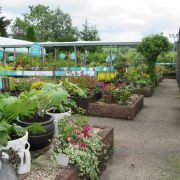Why can’t garden centres in NI buy plants & seeds from GB?
Why can’t Northern Ireland garden centres get deliveries of many plants and seeds from the rest of the United Kingdom?
The situation following Brexit means that part of the UK is better trading with the EU than the UK.
As it stands
- No plant may be sent from the UK to Northern Ireland and the EU if it contains soil or has been grown in contact with soil.
- Plants and seeds require a phytosanitary certificate, which is lengthy and bureaucratic process, before being allowed into Northern Ireland and the EU.
- The EU has a high risk list of plants that may not be brought into the EU or Northern Ireland. These include acers, prunus, quercus, fagus, betula, jasmine and more.
This explains why Northern Ireland garden centres such as Inver, Hillmount and Saintfield Nursery are making the newspaper headlines because their suppliers are saying they cannot deliver their usual supplies of plants and seeds. NI landscapers face a similar situation.
Getting a phytosanitary certificate
EU plant health rules stipulate that plants grown outside the EU must not have had contact with the soil or have soil in the compost. They must have been grown in pure peat, coir or the equivalent. This now includes plants shipped from the UK.
In order to prove this, even the smallest delivery to a garden centre in Northern Ireland needs a phytosanitary certificate issued by a GB-based plant health inspector. To get the paperwork the seller (I refuse to say exporter) must give the UK Animal and Plant Health Agency (APHA) 7 days notice so that the consignment may be inspected. It is then valid for 14 days.
When the delivery arrives at the point of entry to Northern Ireland the plants must be inspected again by the Northern Irish plant health inspectors, often at the cost of the company receiving the goods before they can be delivered.
The cost and time taken to complete these bureaucratic procedures means many UK growers are unable to continue supplying their NI customers.
Seeds
The same is true for seeds.
With the exception of cereal and grass seed which cannot be exported to the EU, there is no blanket prohibition. However, for the first time seeds require a phytosanitary certificate before being allowed into NI. This is additional cost and time for suppliers, which is why some are telling garden centres in the province their orders cannot be delivered.
How long will the situation continue?
There is little sign that anything will be sorted before this season.
It requires the EU to accept that UK hygiene standards are equivalent to the EU and to agree equivalence.
Government focus is on seed potatoes which might be granted equivalence by the EU in the coming days. If this largely political decision is taken, it could provide the template for agreeing that the growing media and conditions for UK plants are also equivalent.
EU ban on high risk plants
The EU also has a list of high risk plants that may not be brought into the EU and now Northern Ireland from the UK or any other third country. The list includes acer, prunus, quercus, fagus, betula, jasmine, lonicera, taxus and ilex.
NI garden centres are having to look within the EU for their plants. This is also true of growers in Ireland, who normally buy many of their young plants and liners from the UK.
The case for horticulture businesses is being led by Sally Cullimore, Policy Manager of the HTA, which is urging government to press the issue with the EU.

